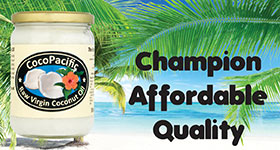|
|
Probiotics and Autism |
|
John Scott reports and Professor Glen Gibson comments of the research. |
It is well known that autistic children often suffer from gastrointestinal discomfort, bloating and diarrhoea or constipation, and it has been discovered recently that the intestines of autistic children tend to contain a higher number of the Clostridium histolyticum group of bacteria than is found in healthy children. A further enquiry from Professor Gibson as to the exact probiotic used in the trial elicited this response: I attach some further information on our research into ASD's. A recently completely human intervention (all done blind coded and double armed crossover - 3 weeks each period with washouts in between) seemed to exert a positive effect in many instances - it involved a non commercial strain of Lactobacillus plantarum. The microbiology was done by new culture independent techniques that rely upon differences in the DNA patterns of the bacteria. Ages were 4-13years. The bad news is that we suffered from a 50% drop out. This was disappointing and means we lost our power calculation (which dictates the number of trialists you need to complete for a statistically valid conclusion). Because of this we can only view the trial as a failure unfortunately. So, the trial gives us optimism - albeit cautious. However, it can't be published in a top journal as we had hoped. The work is all being collated into a PhD thesis right now. It will summarise 4 years research (lab and human). Some is published and the rest will be following the thesis completion. Another parent has informed me that they ordered capsules of lp299V(Lactobacillus plantarum) from Quest. I have to mention however that this is the same species as our test one - but not the same strain. It is a relative but not actually the one tested. I would very much like to do a larger study and hope for less drop outs but the problem I have is that this one was very expensive and I did not look for commercial sponsorship. It was funded by my own personal research account and my University - and if we can't publish as we hoped then it is a bit discouraging. I only hope that sometime independent sponsors like research councils show some interest. Much more research is needed, even if it is disproving an avenue. Here are some parent comments (although I stress they are subjective): Washout Period:
Click here for more articles Click here for LINKS to manufacturers of nutrition and food supplements. First Published in 2007 Back to top
|








